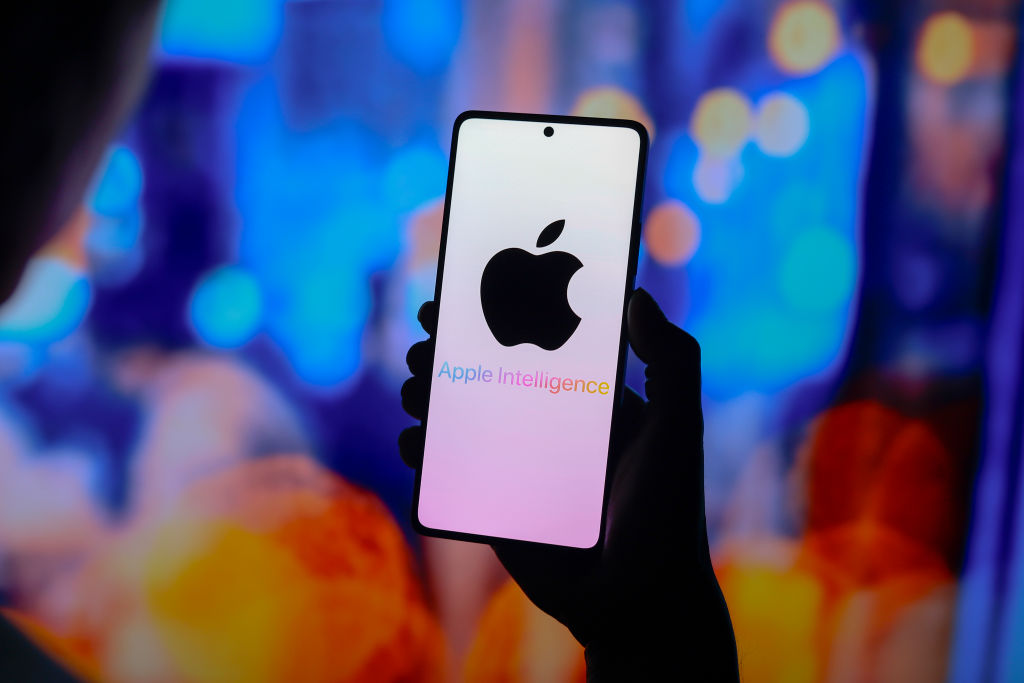A contribution by Bernard Marr for Forbes US – translated by Flora Lucas
In the rapidly evolving world of artificial intelligence (AI), privacy concerns have become a hot topic. As AI systems become more integrated into everyday life, they also gain access to more personal data. This leaves many wondering: can you have powerful AI without sacrificing privacy? Apple’s answer is its new AI system Apple Intelligenceis a resounding “yes.” How is Apple setting a new standard for AI privacy, and how does the company stack up against the competition?
The Apple Approach: Privacy by Design
Apple has long championed user privacy, something the company often considers a fundamental human right. With Apple Intelligence, the company is doubling down on that commitment by building privacy into the very foundations of its AI system. But what does that mean in concrete terms?
On-device processing: Your data stays with you
At the heart of Apple’s approach to privacy is on-device processing. Unlike many other AI systems that send your data to the cloud for analysis, Apple Intelligence does most of the heavy lifting right on your iPhone, iPad, or Mac. It’s like having an awesome friend come to your house to help you out, rather than asking you to send all your stuff over to their house.
With this approach, your personal information (photos, messages, emails, etc.) never leaves your device. It’s not stored on a server, somewhere that’s potentially vulnerable to breaches or misuse. Your secrets stay your secrets, locked away in the device in your pocket.
Private Cloud Computing: When the Cloud Can’t Be Avoided
Of course, some tasks are too complex for even the most powerful mobile devices. That’s why Apple introduced “Private Cloud Compute.” This system allows Apple Intelligence to leverage more powerful server-based models without compromising your privacy.
Here’s the trick: When your device needs to use “Private Cloud Compute,” it only sends the specific data needed for that task. That data is processed on dedicated Apple Silicon servers, as secure as your iPhone. Your information is never stored and is only used to fulfill your request. It’s like sending a confidential letter that self-destructs after it’s been read.
Transparency and Verification: Trust, but Verify
Apple is also setting a new standard for transparency when it comes to AI. The company is making the code running on its servers available for independent experts to inspect. That means privacy watchdogs can verify that Apple is following through on its promises.
Why Apple’s approach is essential
Apple’s privacy-first approach to AI isn’t just a marketing gimmick: It’s a fundamentally different way of thinking about the relationship between technology and personal data. Here’s why it’s critical:
- Trust. By keeping your data on your device and being transparent about its processes, Apple builds trust with its users. In an era of data breaches and privacy scandals, that trust is invaluable.
- Control. Apple’s approach gives users more control over their data. You’re not being asked to blindly trust a company with your personal information; you’re in control.
- Innovation sans invasion. Apple is showing that it is possible to create powerful and useful AI systems without resorting to invasive data collection practices. This could set a new benchmark for the industry.
- Regulatory compliance. As privacy laws become stricter around the world, Apple’s approach gives it a head start. The company isn’t just meeting current standards, it’s exceeding them.
- Ethical AI. By prioritizing privacy, Apple is helping to develop more ethical AI systems. The tech giant is showing that AI can be useful and intelligent without compromising privacy.
The way forward
As AI continues to evolve and become more deeply integrated into the daily lives of millions of people, the issue of privacy will become increasingly critical. Apple’s approach with Apple Intelligence sets a new standard, challenging the idea that privacy must be sacrificed for functionality.
Of course, this approach is not without its problems. On-device processing requires powerful hardware, which could lead to higher costs for consumers. Plus, some tasks may simply be too complex for this privacy-first model.
But by taking this stance, Apple is moving the entire industry forward. The company is proving that privacy and powerful AI are not mutually exclusive, and in doing so, it is forcing other companies to reevaluate their own practices.
As consumers, we need to be mindful. The choices we make about which AI systems to use will shape the future of this technology. By supporting privacy-focused approaches like Apple Intelligence, we are investing in a future where personal data remains personal.
Also read: iPhone 16: Apple unveils its generative AI available in France in 2025


